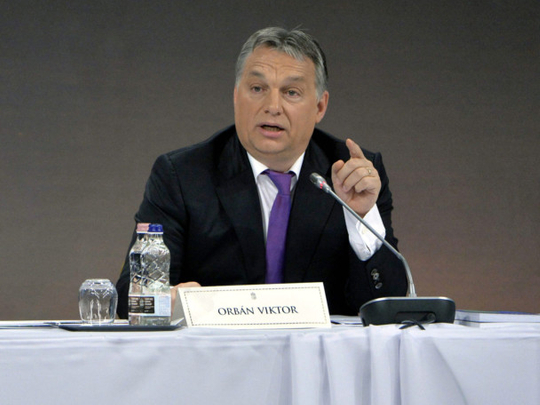
Even before the right-wing Law and Justice party swept to victory in Poland’s October 25 parliamentary elections, it was obvious that this was no ordinary conservative movement. Its political style was bullying and suspicious; it growled ominously that the state was rotten and in need of root-and-branch renewal; it had an unhealthy penchant for conspiracy theories.
But the train of events set in motion by Law and Justice’s entry into office has taken aback even seasoned observers of Polish politics. To some, the possession of power is turning the party into a threat to democracy, pluralism, law-based government and humane social values. Such a label is premature and exaggerated. Still, Law and Justice is undoubtedly damaging Poland’s reputation as the exemplar of progress in post-Communist central and eastern Europe.
Grounds for concern exist in practically every area where the new government has made its mark. Most conspicuous is Law and Justice’s attempt to pack Poland’s constitutional tribunal with its supporters. The tribunal rules on the constitutionality of laws. Its credibility rests on political independence.
There is some truth, as the tribunal itself acknowledged, in Law and Justice’s complaint that Poland’s previous government — led by the centre-right Civic Platform party — acted improperly by rushing to fill vacancies on the court just before it handed over the reins of government. In a sense, both of Poland’s largest parties are guilty of a high-handed approach to the law.
Yet Law and Justice’s behaviour has other motives. The party controls Poland’s presidency and has an absolute legislative majority. The tribunal is the one branch of government beyond its influence, with the right to block its laws — as it did when Law and Justice held power from 2005 to 2007. Party leader Jaroslaw Kaczynski has not forgotten.
Elsewhere, the government has removed Civic Platform appointees that ran the civilian and military intelligence services. The heads of chief executives in large, state-owned companies will roll. The new chief co-ordinator of the secret services is Mariusz Kaminski, a friend of Kaczynski. Kaminski was sentenced to three years in prison for abuse of power when he headed Poland’s anti-corruption office. But President Andrzej Duda, a former Law and Justice politician, pardoned him so that he could take the intelligence job.
Stripping one’s political opponents of plum jobs and giving them to friends is a practice not unknown in western democracies. But Elzbieta Witek, Poland’s government spokeswoman, has gone further by calling for Donald Tusk, the European Union (EU) president and former Civic Platform prime minister, to be put on trial for his handling of a 2010 air crash in Russia. The disaster killed Lech Kaczynski, Jaroslaw’s twin, then Poland’s president. It is axiomatic among Law and Justice conspiracy theorists that Tusk was involved in a cover-up.
As if all these were not enough, Poland’s EU allies take a dim view of the government’s intransigent, even offensive stance on Europe’s refugee crisis — Kaczynski has talked about immigrants carrying “parasites and protozoa” — and its hard line on climate change. But Germany and others are cloaking their misgivings in silence, perhaps because Poland is a strategically placed country. It is not only central and eastern Europe’s most populous country and its biggest economy. It is a Nato and EU linchpin in a region where the Ukraine conflict and other troubles with Russia make alliance solidarity particularly important. Still, a comparison between Poland and Hungary is instructive.
Kaczynski admires Viktor Orban, Hungary’s self-styled “illiberal” Prime Minister. Many of the new Polish government’s actions come straight out of Orban’s playbook. Some western politicians have condemned Orban’s arbitrary methods of rule. Unless Law and Justice changes course, it will deserve the same treatment.
— Financial Times








